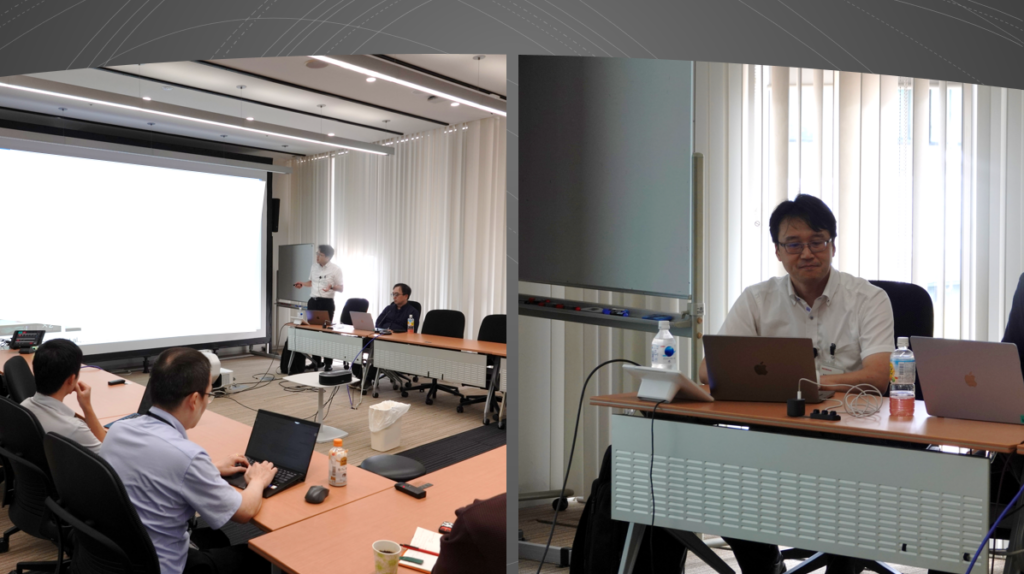【KAIWA】弊社和光本社にて、外部有識者をお招きし、講演会を開催いたしました。
Share
2025年9月24日
社外の研究者や有識者から多様な視点や最新の知見を得るため、このたび弊社和光本社にて社内講演会「KAIWA」を開催いたしました。

講演者:
栁澤 琢史 大阪大学大学院医学系研究科 神経情報学 教授 (兼任)脳神経外科
https://researchmap.jp/takufumi
https://www.med.osaka-u.ac.jp/archives/41799
Title of the talk:
"Neural decoding, Neurofeedback and Brain-Machine Interface"
Abstract:
Brain–machine interfaces (BMIs) have evolved into a powerful platform for both therapeutic intervention and disease research. This presentation highlights our translational studies that bridge neural decoding, neurofeedback, and minimally invasive electrode technologies.
We first demonstrate that MEG- and EEG-based BMIs can induce cortical reorganization and significantly reduce phantom limb pain, with randomized controlled trials confirming clinical benefits. We further extend these approaches to augmented reality systems, enabling portable BMI training for daily application.
Beyond pain therapy, we apply neural decoding techniques to large-scale EEG datasets to extract disease-related neural features in a data-driven manner. Among various neurological disorders we study, including epilepsy and Parkinson’s disease, we particularly emphasize dementia. Multi-center studies show that resting-state EEG combined with deep learning achieves high accuracy in dementia classification, and novel EEG biomarkers such as dynamic mode decomposition and phase–amplitude coupling further highlight the potential of this approach as a non-invasive and accessible alternative to costly diagnostic tools.
Finally, we introduce intravascular thin-film electrodes that enable minimally invasive measurement and stimulation of brain activity, accessing cortical and deep venous structures with unprecedented spatial resolution. Together, these studies illustrate a translational pipeline that connects neural decoding, neurofeedback, and minimally invasive electrode technologies. This integrative strategy paves the way toward practical, accessible, and socially impactful BMIs for communication, rehabilitation, and neurological disease diagnosis.
本講演では、BMI 研究により、幻肢痛治療から認知症診断まで幅広い応用を進め、EEG 解析や低侵襲電極技術を統合し、実用的かつ社会的に意義ある医療・リハビリ技術の実現などについてご紹介いただきました。
